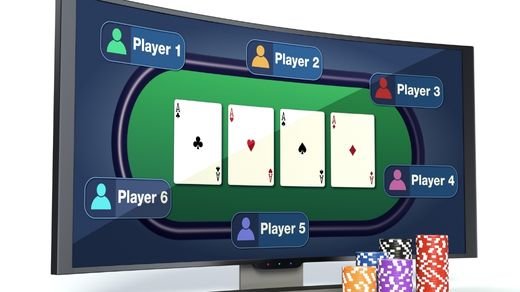Gambling is a timeless pastime that has fascinated humans for centuries. From ancient civilizations rolling dice to modern-day casinos bustling with activity, the allure of risking something valuable for the chance of a reward is ingrained in our culture. Behind the glitz and glamour of the casino lies a world of probabilities, statistics, and psychology. Let’s explore the science behind probability and gambling, shedding light on why we’re drawn to games of chance and how understanding the odds can influence our decisions.
Understanding Probability
At the heart of gambling lies the concept of probability. Probability is the measure of the likelihood that an event will occur, expressed as a number between 0 and 1, where 0 indicates impossibility and 1 indicates certainty.
In gambling, understanding probability is essential for making informed decisions. Whether you’re rolling dice, spinning a roulette wheel, or playing cards, each outcome is governed by probability. For example, in a game of coin toss, the probability of landing heads or tails is 50%, assuming a fair coin.
The House Edge
In most casino games, the house always has an edge. This edge ensures that, over the long run, the casino will make a profit. The house edge is built into the rules of the game and is expressed as a percentage of each bet that the casino expects to win on average.
For example, in roulette, the house edge comes from the presence of the green 0 and 00 pockets on the wheel, which tilt the odds slightly in favor of the house. Similarly, in blackjack, the house edge arises from the rules dictating when the dealer must hit or stand.
Understanding the house edge is crucial for gamblers, as it informs them of the odds they’re facing and helps manage expectations.
The Psychology of Gambling
Beyond the mathematics of probability, gambling also taps into the psychology of risk-taking and reward-seeking behavior. The anticipation of a potential win triggers the brain’s reward system, releasing dopamine and creating a pleasurable sensation.
Psychological factors such as the near-miss effect, where narrowly missing a win increases the desire to continue gambling, and the gambler’s fallacy, where individuals believe that past outcomes influence future events, play a significant role in shaping gambling behavior.
Understanding these psychological mechanisms can help individuals recognize and mitigate the risks associated with gambling.
Free Hold’em Site: A Safer Alternative
For those who enjoy the thrill of gambling but want to avoid the financial risks, 무료홀덤사이트 offer a safer alternative. These platforms allow players to enjoy the excitement of Texas Hold’em poker without wagering any real money.
Free hold’em sites provide an opportunity for players to practice their skills, learn new strategies, and socialize with fellow enthusiasts without the fear of losing money. Additionally, they offer a risk-free environment for individuals who may be prone to problem gambling or want to test their abilities before playing with real stakes.
Responsible Gambling Practices
While gambling can be an enjoyable and entertaining activity, it’s essential to approach it responsibly. Setting limits on time and money spent, avoiding chasing losses, and seeking help if gambling becomes a problem are crucial steps in practicing responsible gambling.
Free hold’em sites can be part of a responsible gambling strategy, allowing players to indulge in their passion for poker without the financial risks associated with traditional gambling.
Conclusion: Balancing Risk and Reward
Gambling is a complex interplay of probability, psychology, and chance. Understanding the science behind probability can help gamblers make informed decisions and manage their expectations.
Free hold’em sites offer a risk-free alternative for individuals who enjoy the excitement of gambling but want to avoid the potential financial consequences. By practicing responsible gambling habits and understanding the odds, players can enjoy the thrill of the game while minimizing the risks associated with gambling.

